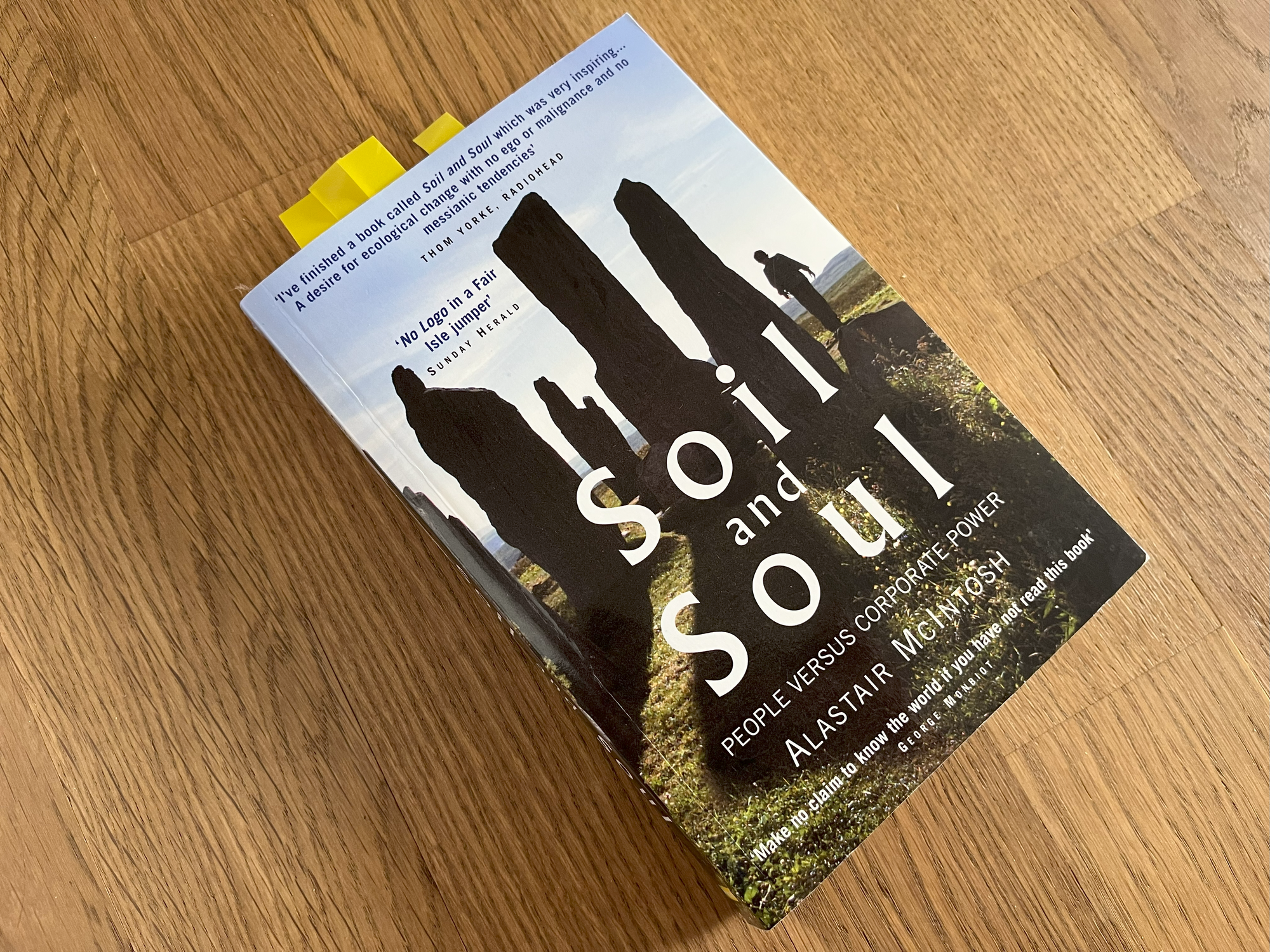Regenerating Modernity's Mirkwood

Modernity is an Oxymoron
In a world that must navigate the complexities of climate change and truly sustainable consumption, it is becoming increasingly clear that we must harmonise our cultural values with the greater vision of a truly regenerative society. My soul, a wanderer and a witness, has sojourned through the silent boreal forests of Sweden (I lived in Södermanland County for three years), the tranquil mountainous elegance of central Switzerland (also three years), and vivid industrial landmarks of Great Britain (childhood in Wales). I never wished or set out to be a "career nomad", much like Bilbo Baggins content in his home under The Hill, I never really wanted to leave the rolling hills of North Wales. I liked my cups of tea and spent my school holidays helping out on the family farm or on a friend's farm. But my journey in Physics and first job ploughed an unexpected journey and I often feel like Frodo wanting to return to the shire. Until that time comes, I feel that my journey through life to date could offer a journeyman's perspective on our need to cultivate a truly regenerative economy - which is something that is certainly "worth fighting for".
I know now folks in those stories had lots of chances of turning back, only they didn't. They kept going because they were holding on to something. That there's some good in this world, Mr.Frodo, and it's worth fighting for. - Samwise Gamgee (The Lord of The Rings)
This is especially resonant for myself, as a father of three (the third only two weeks old at the time of this writing), the need for generating a more sustainable, equitable and regenerative society is something I am particularly passionate about.

As described in "Soil and Soul", the premise of a regenerative transition begins with land reform, which is a complex matter within this confluence of "landed power" and the historical nucleation of societal wealth to the few. It is indeed a complex challenge, but something we must overcome as a regenerative society. In the cacophony of chatter that accompanies any great shift in age or industrial revolution, the literary giants like Tolkien and Chesterton, have much inspiration to offer us.
“Fairy tales are more than true: not because they tell us that dragons exist, but because they tell us that dragons can be beaten.” G. K. Chesterton
Drawing upon inspiration from the contrasting imagery akin to Tolkien’s Middle Earth, I embark on a journey through the alluring Elven halls of Switzerland's wealth, the robust Viking ethos of Sweden's industrial virility, and the Dwarven industrialist cunningness of modern Britain. Today, we navigate a world of contradictions. On one hand, we have made astronomical advances, reaching into the very depths of space. On the other, we grapple with earthly challenges of poverty, inequality, and environmental degradation. As the recent journal below details, we are currently terribly poor stewards of mother nature and our current anthropogenic standpoint is, in meritocratic terms, unfit and unworthy.

It’s a paradox that calls for deep reflection and concerted action. This essay aims to explore the need for a collective revaluation of our tenets, highlighting the importance of fostering strong communities, ethical stewardship, and a collective love for the Earth we call home. Each voice, including those grounded in spiritual, philosophical, and scientific perspectives, is essential to shape a world where human and planetary well-being are at the core. The challenges we face are as multifaceted as the solutions they require.
Amidst the alluring landscapes that echo the elegance of Elven splendour and Viking virility, lies a tale not of enchantments, but of the divine "triad of old" revived in new attire; Mars (power), Mammon (affluence), and Aphrodite (pleasure), garbed in the garments of the modern epoch, lead the silent procession of the unseen forces that steer the post-Enlightenment vessel of modernity. Today’s culture, liberal and bold, claims a victory over the celestial; a freedom from the “divine tyranny” of old. That "ancient otherness" in our reality has been carved out from the mainstream narrative of educational institutions, workplace coffee rooms and, in many cases, the home dinner table. Sadly, mystery and moral conscience is seemingly becoming the new fairytale within the progressive tenement halls of today. And yet, in this dance of emancipation, new masters have risen; not in heavens yonder, but in the human heart. It is a dance of power, affluence, and pleasure, echoing the hymns of Mars, Mammon, and Aphrodite, a triad of gods from an age we claimed was behind us, and yet they linger, elusive and yet ever-present.
"It is one of the tragedies of modern culture that we have lost touch with these primal thresholds of nature. The urbanization of modern life has succeeded in exiling us from this fecund kinship with our mother earth. Fashioned from the earth, we are souls in clay form. We need to remain in rhythm with our inner clay voice and longing. Yet this voice is no longer audible in the modern world. We are not even aware of our loss, consequently, the pain of our spiritual exile is more intense in being largely unintelligible.
Greed is one of the powerful forces in the modern Western world. It is sad that a greedy person can never enjoy what they have, because they are always haunted by that which they do not yet possess. This can refer to land, books, companies, ideas, money, or art. The motor and agenda of greed is always the same. Joy is possession, but sadly possession is ever restless; it has an inner insatiable hunger. Greed is poignant because it is always haunted and emptied by future possibility; it can never engage presence. However, the more sinister aspect of greed is its ability to sedate and extinguish desire. It destroys the natural innocence of desire, dismantles its horizons, and replaces them with a driven and atrophied possessiveness. This greed is now poisoning the earth and impoverishing its people. Having has become the sinister enemy of being." - Anam Cara: A Book Of Celtic Wisdom, John O'Donohue
A recent paper, published in Nature, serves as a poignant reminder of this creative tension within the human heart, which is impoverishing our living systems on earth. The paper unveils the unfolding challenges of escalating urban water crises, where elites' unsustainable consumption amplifies the discord, calling for an urgent, conscientious revaluation of our water usage and social equity.
"A billionaire emits a million times more greenhouse gases than the average person" - Report - Carbon Billionaires: The investment emissions of the world’s richest people, Oxfam
As we dwell on the entrails of modernity, highlighting both the allure and consequences of our consumptive patterns, we also turn our gaze towards beliefs that embody the essence of today, navigating the boundaries between societal liberty and ethical introspection. In this conversation, voices like John O'Donohue and G. K. Chesterton, provide wholesome narratives that can guide us in this pilgrimage that is life. Their engagement with deeper, spiritual narratives offers an alternative perspective. It's not about the austere dominion of a celestial being, as often critiqued, but an unfolding narrative of divine love and redemption. O'Donohue and Chesterton highlight a dimension where love, sacrifice, and community are central themes, offering a counter-narrative to the individualistic and material-centric ethos prevalent today. It’s a reminder that amidst the celebration of personal freedoms, there lies an opportunity for introspection and revaluation of the values we hold dear.
In this nuanced dialogue, we’re invited to consider how our prevailing culture and values are cultivating resilience for all living systems to flourish in the future. It beckons a collective reflection on our trajectory, an exploration of how we might harmonize personal liberties with empowering the imagination to enact ethical stewardship and communal well-being. Nothing exists in isolation and we ought to revaluate our inflated anthropocentric perspective - we are currently poor stewards and our living 'planet is in peril'.
"Essentially, we belong beautifully to nature. The body knows this belonging and desires it. It does not exile us either spiritually or emotionally. The human body is at home on the earth. It is probably a splinter in the mind that is the sore root of so much of our exile. This tension between clay and mind is the source of all creativity. It is the tension in us between the ancient and the new, the known and the unknown. Only the imagination is native to this rhythm. It alone can navigate in the sublime interim where the lineaments of these differing inner forces touch. The imagination is committed to the justice of wholeness. It will not choose one side in an inner conflict and repress or banish the other; it will endeavour to initiate a profound conversation between them in order that something original can be born." - Anam Cara: A Book Of Celtic Wisdom, John O'Donohue
We need to rekindle our capacity for imagination, and before the whims of opinion flood our mind, we need to reflect on how, if at all, the culture of today is preparing our children (and their children) to cultivate collective resiliency to flourish, despite a changing climate, persistence of inequality and resource constraints.
Yet, it’s essential to appreciate the multifaceted nature of human existence. We unfortunately gravitate towards simplistic deductions like a moth to a light. In the quest for spiritual and ethical enlightenment, the realm of public discourse is often a battlefield of divergent perspectives, with the competition-imbued “Dawkinian” view carving its niche in contemporary political thought.
When convictions that are central to the group’s identity become part of its shared cultural narrative, it is more likely for the members of the group to be intellectually arrogant about them, simply because any threat to them threatens the group identity. It is perceived as a threat to ‘who we are’. (Michael .P. Lynch 2021)
This recent study is a beckoning to far greater humility in our pursuit of truth and willingness to seek unity. As we ponder the challenges of widespread societal inequalities and a changing climate, we are also summoned to grapple with today's ideologies that echo the inherent complexities of the human heart.

